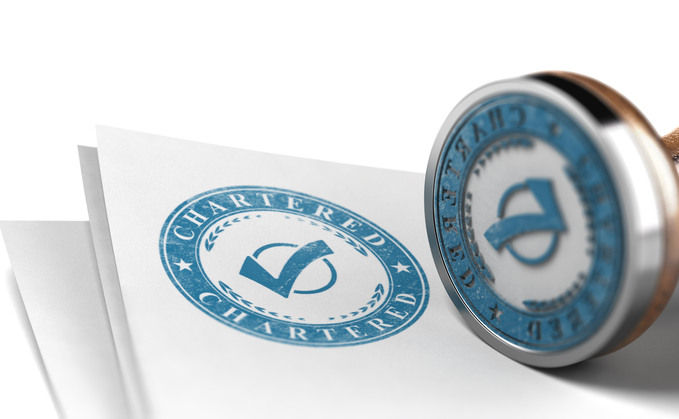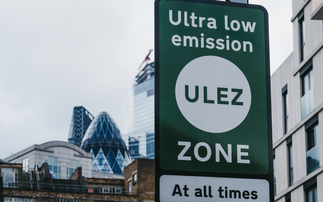
Is Chartered status worth the effort?
Many firms see Chartered status as a badge of professionalism, but the process can be lengthy and expensive, with timeframes running into the years for some firms and costing thousands. So, asks Hannah Godfrey, is the Chartered financial planner firm status worth the hard graft?
There are more than 5,000 financial adviser firms operating in the UK, yet only 692 of those currently hold Chartered status, according to figures from the Chartered Insurance Institute (CII). The reasons for that could be extensive, however, the lengthy process involved in achieving corporate Chartered status likely explains why more firms have not made it over the line, or rather not tried to begin the journey at all.
To achieve corporate Chartered status, financial planning firms must meet a varied set of requirements set out by the CII, of which some are trickier than others.
One of the most stringent requirements demands that at least 50% of advisers working at a corporate Chartered firm hold the Chartered financial planner title. As it can take individuals years to become Chartered, having the right number of advisers with Chartered financial planner status can pose a major barrier to a firm achieving the status at a business level.
In addition, at least one of a firm's board members must hold the individual Chartered financial planner title, and a board member who satisfies that criterion must become the firm's responsible member, acting as a primary point of contact with the CII, responsible for the application and renewal stages of the process, along with related issues.
Other requirements include evidence of three years' pre-application trading as an authorised and regulated business, and records of a firm's core values, business practices and a diversity and inclusion policy that aligns with the CII Code of Ethics. Firms applying for corporate Chartered status must also have an appropriate professional development plan in place.
There are also costs involved. Chartered firms are required to pay annual fees to the CII to keep their Chartered status, which vary according to a firm's size, and the cost of taking the exams in order to ensure enough advisers at a firm are Chartered can run into the thousands.
Firms interested in the process must first meet the eligibility criteria, fill in a form, and then submit that to the CII, along with any necessary evidence. The process is long and can be costly, but many firms with Chartered status display it as a badge of professionalism.
Badge of honour or just a badge?
Wingate Financial Planning Chartered financial planner Alistair Cunningham achieved his personal Chartered status in 2007, having joined the sector straight from university and in the mindset to take exams. Wingate Financial Planning then achieved corporate Chartered status in 2008, becoming one of the first firms to do so.
"At the time, we thought: what would the modern financial planning firm look like over the next 10 years?" Says Cunningham. "It was basically about credibility, wanting to feel different - in a good way - to our peers. Being Chartered is something people aspire to be, as both an individual and as a firm. We want to be pushing professionalism forward."
He acknowledges that, as more firms become Chartered, the status ceases to look as exceptional. However, he sees becoming Chartered as the "bare minimum" that should be reasonably required of firms, adding: "It's proof of a commitment to higher standards, proof of ethics and so on; [Chartered status] is as valuable as it was before. Why would you not be Chartered?"
But while some bang the drum loudly in support of Chartered status, others are less convinced of its merit. Values to Vision founder and IFA Nick Lincoln has been an adviser since 2001 but has never felt the need to venture down the Chartered route.
Lincoln believes he would be unlikely to learn much from the exams involved in the process, having worked for 20 years in the sector with clients "communicating with [them] and getting them to take action", he says. "I'm not sure there's much in the Chartered process that gives people that."
In addition, he says, the process is "out of date", arguing anyone Chartered before 2015 was suddenly "blown away by the pension freedoms, as all technical knowledge quickly becomes redundant in our profession.
Finally, Lincoln says he knows "plenty of cowboys" with Chartered accreditation at the firm level, adding: "They hide behind the badge; they don't do financial planning, all they do is portfolio management. With that said, I know some very good people who are Chartered, but it's not the be-all and end-all."
‘Evidencing is the hardest part'
Morgan Williams IFA Daniel Williams is in the process of becoming a Chartered financial planner and, when his firm meets the CII's criteria, it will apply for corporate Chartered status. Like Cunningham, Williams sees the status as a demonstration of commitment to financial services as a profession.
"We want to be the best we can be, and we see Chartered status as a natural place to be if we're looking at the next five to 10 years," says Williams. "It's a place I think everyone should be aiming towards, and I think every firm should try to get Chartered status because if you aren't Chartered in five years' time, people will wonder why. I think it's going to be the industry standard."
Despite his enthusiasm, the process is long and has already been years in the making at his firm. Williams has been working towards Chartered financial planner status for around four years, and he reckons it will be another 12 to 18 months before the firm is eligible for corporate Chartered status.
The longest part of the process on the road to corporate Chartered status for Morgan Williams has been getting the team to the required Chartered level. The exams are tough, Daniel Williams says, and some - particularly those with a low pass rate - often take more than one attempt, making the process even more costly. In addition, work occasionally gets in the way, and time that might otherwise have been spent revising for exams gets eaten up servicing clients. Williams estimates a single exam can require between 100 and 150 hours of revision.
Additionally, parts of the CII's corporate Chartered status criteria can feel "irksome", as Williams puts it, including the CII's requirement that all corporate Chartered firms be able to give a "full financial planning service", meaning firms need to be versed in all parts of retail financial planning, even if a firm does not specialise in an area.
"The actual process is a case of being able to demonstrate what you do, how you do it, the individual qualifications at the firm and being able to submit your policies," Williams continues. "A lot of firms will have good cultures, but they won't necessarily have a written policy on diversity and inclusion, for example. The CII wants to see things documented because it's trying to put structure into the profession - that's the side people find difficult, and they sometimes have to find external help so they can write the policies up properly."

The reality facing advisers
Proving such policies are in place is the challenge currently facing Adcock Financial, an adviser firm that decided to work towards corporate Chartered status four months ago. Unlike Morgan Williams, Adcock has the necessary distribution of Chartered advisers, with two of three advisers at the firm holding Chartered financial planner status and the third working towards it. However, the difficulty facing the small Richmond-based firm centres on proving Adcock's values are in line with the CII's.
Andy Coles, an IFA at the firm, says: "Although we have a continual learning programme, for example, we've never properly documented it, and although we're naturally quite an inclusive firm, we haven't got a written policy in place, so how do we go about showing we're as inclusive as possible? That's probably the hardest thing, having to evidence this stuff."
Coles says corporate Chartered status has never felt like a "huge hurdle" and is a good way to demonstrate that an independent body has verified any claims made by firms on their websites.
He adds the firm's future status will mean anyone who joins the firm will at least have to be on their way to achieving Chartered status. Fortunately for firms in Adcock's position, whereby a couple of adviser hires could tip the balance, the CII is willing to be flexible so that firms do not automatically lose their corporate Chartered status.
CII professional standards director Melissa Collet says that in the event a Chartered firm temporarily falls out of compliance with the 50% requirement, "we try to be as flexible as possible while still maintaining the standards expected of Chartered firms".
She adds that firms in that position should contact the CII's customer service team to explain their circumstances and outline their plan to return to compliance with the 50% requirement. This will typically include a breakdown of how many advisers are at a firm, how many are Chartered and how many are working towards it (including which advisers are taking which exams and when) so the CII can get an idea of a timeline for the firm to reach the required Chartered FP distribution.
"Provided that the line is clear, and it provides a reasonable timescale for completion, we will then consider granting the firm a grace period in which to fulfil their plan," she adds.













